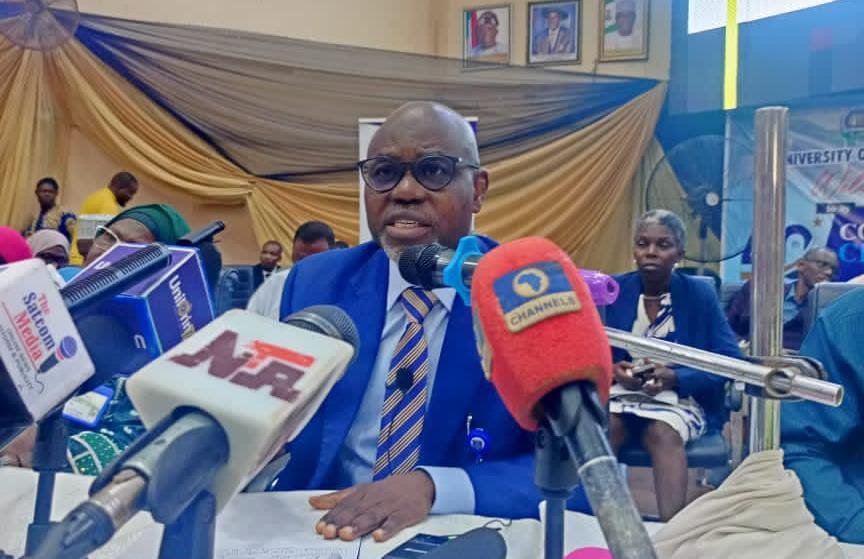As Nigeria struggles to reposition its higher education system as an engine of economic growth, the University of Ilorin is setting its sights on becoming a national hub for innovation, technology, and applied research.
Vice-Chancellor, Professor Wahab Olasupo Egbewole, SAN, made this clear while addressing journalists at the university’s 40th Convocation and 50th Anniversary press briefing themed “Three Years of Purpose and Impact.”
According to Egbewole, Unilorin’s next growth phase will hinge on deepening its role in solving Nigeria’s economic and technological challenges.
“Universities must go beyond teaching and certification. We must become problem-solvers, knowledge producers, and innovation centers contributing directly to national development,” he said.
Under his administration’s five guiding principles — academic excellence, innovation, institutional integrity, inclusive growth, and sustainable development — Unilorin is positioning itself to compete globally. “We pressed the reset button for the sun to rise again — and indeed, the sun is rising,” he declared.
Funding Gaps and Resilience
Egbewole, however, drew attention to the severe underfunding of public universities in Nigeria.
For 2025, Unilorin’s total budgetary requirement was ₦31 billion, with only ₦2 billion coming from the Tertiary Education Trust Fund (TETFund). “That gives you a sense of the gap public universities manage,” he said.
Despite this, TETFund’s ₦2.56 billion intervention for 2025 has been vital, covering infrastructure, ICT, entrepreneurship, and staff training.
A ₦4 billion High Impact Project at the College of Health Sciences and ₦300 million in Zonal Interventions have also boosted the university’s capacity.
Still, the VC warned that Nigeria cannot build a competitive economy without treating universities as innovation engines.
“If funding remains peripheral, we will keep producing graduates instead of problem-solvers.
“The nation’s growth depends on how universities are equipped to generate and apply knowledge,” he said.
Ranking Controversy and Academic Stability
Responding to questions about the university’s drop from first to third most sought-after in 2025, Egbewole dismissed it as a temporary statistical outcome. “There are seven parameters for ranking.
We met five but missed two. Over 22,000 candidates sat for our post-UTME this year, and many more will switch after the exercise. Our position will be clearer next year,” he explained.
For years, Unilorin’s uninterrupted academic calendar has made it a preferred choice among students. The VC credited this stability to the discipline of both staff and management.
“Our academic and non-teaching staff remain the lifeblood of this university. Their commitment keeps Unilorin Better by Far,” he said.
Research, Human Capital, and Impact
This year, the university will graduate 11,886 students across disciplines, including 316 First Class graduates. Egbewole emphasized that human capital remains Unilorin’s greatest contribution to national development.
“Each graduate is a product of rigorous training, mentorship, and innovation. Our alumni are shaping industries, governance, and communities across Nigeria,” he said.
As Unilorin celebrates 50 years, Egbewole reaffirmed his goal of aligning the university’s research output with Nigeria’s push for economic diversification.
He said the institution will expand collaborations with industry, strengthen entrepreneurship programs, and establish technology-driven research centers.
“Higher education must fuel industrial growth,” he said. “If Nigeria must compete globally, its universities must lead in renewable energy, AI, agriculture technology, and health innovations. That is the path we are charting.”
With that vision, Unilorin’s golden jubilee marks not just a celebration of legacy, but a turning point toward a future where knowledge powers the economy — and the sun indeed rises again over the Better by Far university.







